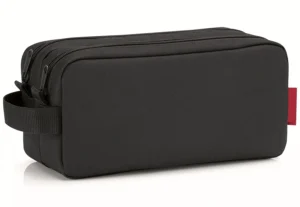How to Support Elderly Loved Ones with Swallowing Issues

Swallowing difficulties, dysphagia, can impact people of all ages but are more likely to occur after age 60. Many issues can lead to swallowing problems, including nerve damage from injuries, strokes, Parkinson’s disease, and MS. Elderly loved ones can have a challenging time getting the nutrition they need. They may experience frequent aspiration that can lead to pneumonia. Supporting your elderly loved one is critical and can help them safely manage their condition. Modifying food and drink and encouraging proper eating and swallowing habits can make a significant difference.
The Signs of Swallowing Disorders
Some people do not realize right away that they have a swallowing problem. Reading posts on X by SimplyThick can help you understand the condition better. You may notice The following common signs in your elderly loved one.
- Choking or coughing while eating
- Feeling like food is stuck
- Frequent throat clearing
- Wet or gurgling voice
- Unexpected weight loss
- Frequent bouts of pneumonia
If your loved one exhibits these signs, seeking medical care for a diagnosis is vital. Finding the underlying cause will help with managing dysphagia and other conditions that may result.
Using Thickening Agents
Seniors with dysphagia may be unable to swallow liquids due to aspiration. Adding thickening agents to liquids can help slow their movement during swallowing, making liquids safer. Thickeners are available in tasteless gels and can be added to any beverage.
There are three levels of thickening, depending on the degree of swallowing difficulty:
- Nectar-thick liquids are slightly thickened to the consistency of tomato juice.
- Honey-thick liquids are thicker, similar to the consistency of honey.
- Pudding-thick liquids are very thick and spoonable. They will not flow through a straw.
It is essential to consult with a speech therapist who can help guide you on which thickness level your loved one needs. You may also need to experiment to see which they prefer.
Choosing the Right Food Texture
For someone with dysphagia, food texture is essential. Soft, moist foods help reduce the dangers of choking and aspiration because they are easier to swallow. The following are some of the best food options for seniors with dysphagia.
- Mashed potatoes with broth for added moisture (Make them slightly runny.)
- Finely chopped scrambled eggs
- Yogurt and pudding
- Ripe bananas and applesauce
- Well-cooked pureed vegetables in gravy or sauces
Meats are essential to your loved one’s diet because they need protein to protect against muscle and strength loss. Meat should be boiled or ground and cooked soft. You can puree meats with vegetables and soups to make them easier to swallow. Soft-baked or boiled fish is also a good choice because it flakes easily and is easy to chew and swallow.
Encouraging Careful Eating
What seniors eat is just as important as how they eat. Encourage careful chewing and swallowing. Seniors should eat slowly and avoid talking and other activities that could cause them to swallow incorrectly. Please encourage them to take small bites and chew each one thoroughly before swallowing. Keep them upright for at least 30 minutes after eating.
Make Changes Slowly
It takes patience and time to help elderly loved ones with dysphagia. Consider thoughtful adjustments one at a time, giving your loved one time to adapt. They may initially resist, but with the right approach and medical intervention, you can help them enjoy eating again.






